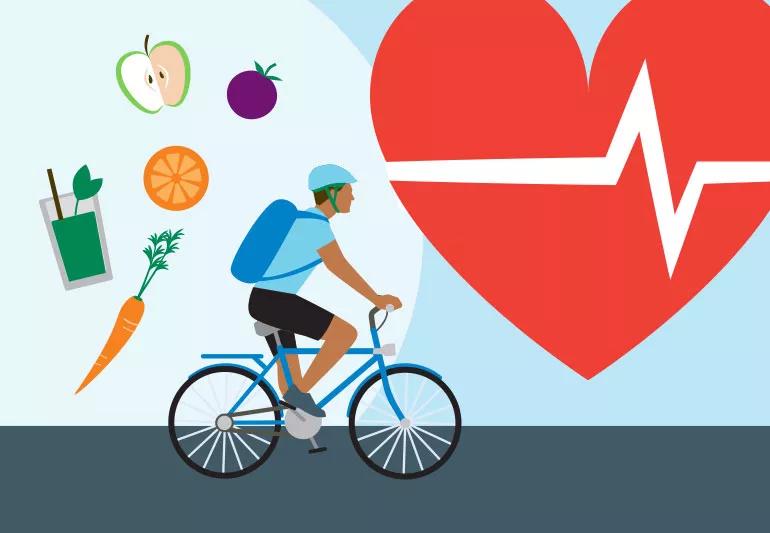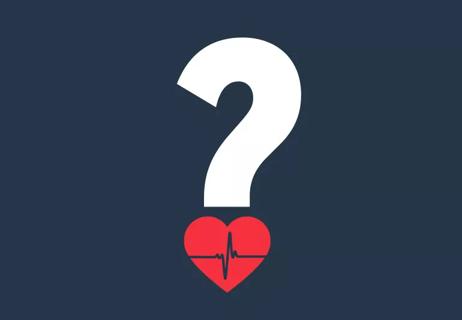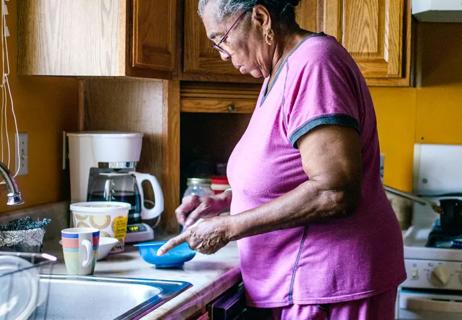Making healthy lifestyle changes ahead of surgery can help you avoid AFib after

Days into recovery from heart surgery, an odd feeling may hit your chest. Your once steady heartbeat — lub-dub, lub-dub, lub-dub — might suddenly switch to the chaotic rhythm of an elementary school band.
Advertisement
Cleveland Clinic is a non-profit academic medical center. Advertising on our site helps support our mission. We do not endorse non-Cleveland Clinic products or services. Policy
This erratic and irregular heartbeat is called atrial fibrillation, or AFib. It’s a common and frightening symptom affecting up to 55% of patients after cardiac surgery, according to some estimates.
So, is there a way to reduce your risk of developing AFib and the complications that can come with it? Let’s look at options with cardiothoracic surgeon Edward Soltesz, MD.
It’s believed that inflammation in the chest following heart surgery contributes to AFib within a week after the procedure, says Dr. Soltesz. But the exact trigger for AFib remains unclear.
AFib is basically a malfunction of your heart’s electrical system, which powers the steady contractions that pump blood through your body. Most people’s heart rates are between 60 and 100 beats per minute. But AFib brings a series of rapid, chaotic pulses that upset your heart’s rhythm and drive it higher or lower. When this happens, your heart doesn’t contract effectively — which means blood isn’t squeezed out properly.
Some cases of AFib can be mild enough to go unnoticed. More severe cases of AFib, however, can lead to fatigue, chest pains (angina) and what’s described as a “feeling of butterflies” in your chest.
“Prevent” may be too strong a word regarding your ability to ward off the development of AFib, but here are four steps you can take ahead of heart surgery to reduce your risk, according to Dr. Soltesz:
Advertisement
If you get AFib, various treatments and medications are available to help get your heart back into its proper rhythm.
Regaining control is important. Untreated AFib can increase your risk of blood clots and stroke. (Fast fact: AFib causes about 1 in 7 strokes, according to the U.S. Centers for Disease Control and Prevention.)
Over time, AFib can weaken your heart and open the door to heartfailure.
“AFib can occur sporadically or persistently — and if it happens once, it’s more likely to happen again,” states Dr. Soltesz. “Talk to your physician before and after surgery about your potential risks and what you can do to decrease them.”
Advertisement
Learn more about our editorial process.
Advertisement

Opt for plant-based foods and consider limiting alcohol and caffeine

Having atrial fibrillation increases your risk of stroke — but blood thinners can help for many people

The short answer from a cardiovascular researcher

Knowing the facts can make all the difference

Your scar will heal best if you keep the area clean, dry and covered for an appropriate amount of time

Fainting, heart palpitations and shortness of breath are just a few signs your heart may need help

Keep the area clean and monitor your incision site for discharge, odor or a change in appearance

It’s important to remember that not everyone heals at the same rate

Wearing a scarf, adjusting your outdoor activities and following your asthma treatment plan can help limit breathing problems

Your diet in the weeks, days and hours ahead of your race can power you to the finish line

When someone guilt trips you, they’re using emotionally manipulative behavior to try to get you to act a certain way